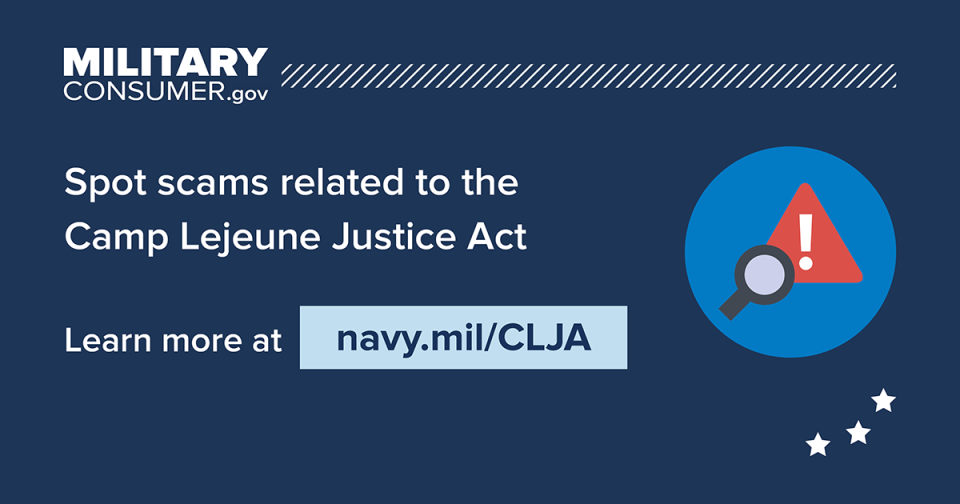The Department of Justice and the Navy will never ask you to pay to file a disability claim. Want to know who will? Scammers. Keep scammers away from your personal information — and your money — while you’re applying for relief.
The Camp Lejeune Justice Act (CLJA) lets veterans and their families file for benefits if they were previously exposed to contaminated water at Camp Lejeune. It’s free to file a claim but scammers don’t want you to know that. They might call you promising to help you file your claim (for a fee) — but they’re really just after your personal information and your money.
Whether you’ve already filed a claim or plan to file one soon, you might hear from a scammer. Slow down and remember these steps to spot and avoid their tricks:
- Don’t trust anyone who contacts you claiming to be from the DOJ or the Navy. Scammers try to sound real with official-sounding names and titles. Don’t share any information with them. Instead, get the person’s name and position, then call the Camp Lejeune Claims Unit (CLCU) at (757) 241-6020 to verify.
- Only trust CLClaims@us.navy.mil — that’s the Navy’s official email address for the CLCU. Got a message from a different email address? It’s a scam. Forward it to the CLCU.
- Never pay. If someone requests money or payment from you, it’s a scam! The DOJ and the Navy won’t do that.
- Communicate through your attorney. If you’re represented by an attorney, the DOJ and the Navy will never contact you directly about your claim. Anyone who does is a scammer. Report them to your attorney and to the CLCU right away.
Filing a CLJA claim with the Navy does not affect your VA disability claims.
Go to navy.mil/CLJA to learn more about the Camp Lejeune Justice Act. And share this message with someone you know.

